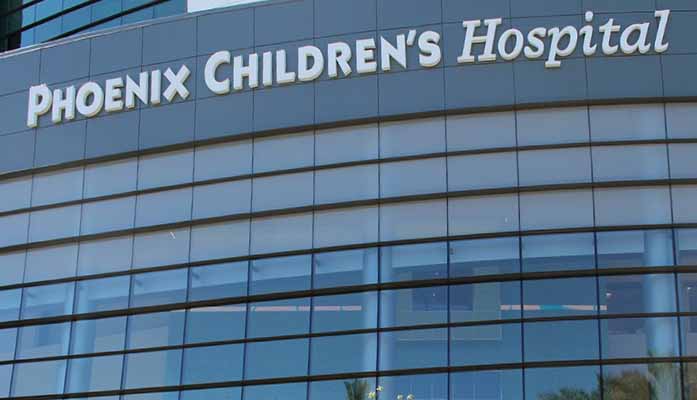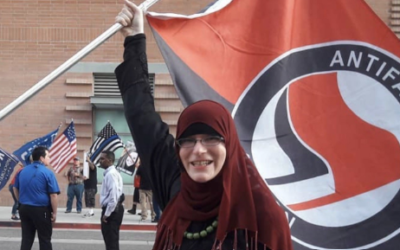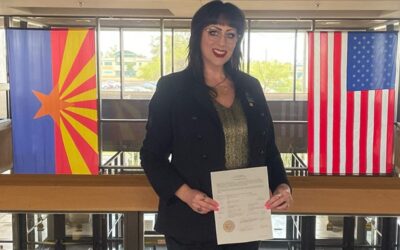By Corinne Murdock |
The president and CEO of Phoenix Children’s Hospital (PCH), Bob Meyer, was recently named among the top 100 most influential figures in health care.
The recognition from Modern Healthcare comes not long after widespread controversy over the hospital’s practice of “gender-affirming care,” a euphemism for medical and surgical procedures to transition genders. Modern Healthcare selected Meyer for not only accomplishing clinical, operational, and financial goals, but for accomplishing progressive ideals through implementing diversity, equity, and inclusion efforts.
In a press release, Meyer credited his recognition to PCH’s creation of new programs and centers — among which is the controversial Gender Support Program.
“This is a reflection of the tireless commitment of our thousands of colleagues who have dedicated themselves to creating nationally recognized programs and centers of excellence that give our patients hope and healing,” said Meyer. “For more than 20 years, my primary focus has been to grow Phoenix Children’s into the Southwest’s premier pediatric health system, and we will continue to expand access to the top-ranked pediatric healthcare our children need and deserve.”
Meyer joined PCH in 2003. It was under Meyer that PCH established its Gender Support Program around 2015, one of the only comprehensive gender transition programs for minors in the state. The program spun off a support group for families whose children underwent gender transition procedures: the Gender Proud Patient and Family Advisory Council (PFAC).
Due to laws passed in recent years outlawing gender transition surgeries, PCH limits its gender transition offerings to hormonal and therapy treatments; PCH refers patients elsewhere for surgical procedures.
PCH’s Gender Support Program, previously the “Gender Management Program,” conducts consultations for families on gender transitioning, the use of puberty blockers, and the use of hormonal replacement drugs; readiness evaluations for puberty suppression and cross-sex hormonal replacement drug usage by mental health providers; a staff psychologist-led weekly support group, as well as other mental supports; community advocacy, from speaking engagements to advocate for gender transitioning to assisting patients with legal name and gender marker changes on identifying documents; and media appearances to further advocate for gender ideology.
The program is affiliated with Arizona Trans Youth and Parent Organization. PCH also offers minors access to “affirming” gender transition procedures through its Homeless Youth Outreach Program, which applies to minors who are not only homeless but those considered “at risk” for becoming homeless due to their gender dysphoria.
One of the resources offered by the program through PCH’s Emily Center Family Health Library is its now-deleted Gender Support Program Resource Guide. AZ Free News was able to access an archived version of the resource page.
Program resources included links to this American Psychological Association (APA) article on transgenderism, the now-defunct “genderbread” website, the now-defunct Australian-based “Trans 101” website on gender diversity, this APA fact sheet on non-binary gender identities, this Advocates for Youth page advocating for transgenderism in minors, this Gay Lesbian Straight Education Network (GLSEN) pronoun guide.
The program also included video and website resources explaining the medical and surgical interventions for child gender transitions. PCH relied on resources from the Seattle Children’s Hospital and the University of California at San Francisco’s Center of Excellence for Transgender Health resource to explain puberty blockers and hormone replacement therapies.
At the helm of the PCH program is its founder, Veenod Chulani. Their staff also includes pediatric endocrinologist Reeti Chawla, pediatric psychologist Joshua Kellison, and therapists Andrew Melina, Patrick Goodman, and Anne Marie Cardinal.
Goodman is the husband of Gov. Katie Hobbs.
Last November, PCH hosted a session featuring Chulani and pediatrician Edith Allen to discuss PCH’s approach to treating gender dysphoria: “affirmative, culturally humble, trauma responsive, and strength-based.” PCH also focused on legislative and cultural efforts to resist gender transitions for minors.
Chulani has served as the medical director of quality of care and child safety for the Arizona chapter of the American Academy of Pediatrics since 2016.
PCH projects that it will be the fourth-largest pediatric health care system nationally. PCH has just under 2,000 primary care providers and specialists covering just under 80 subspecialities. The hospital network opened a new campus in Glendale last month, preceded by an emergency center in Avondale over the summer.
The Gender Support Program is limited to PCH’s main campus.
Corinne Murdock is a reporter for AZ Free News. Follow her latest on Twitter, or email tips to corinne@azfreenews.com.








